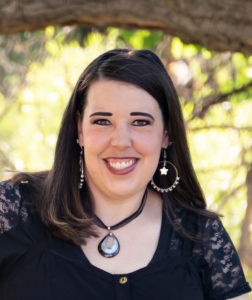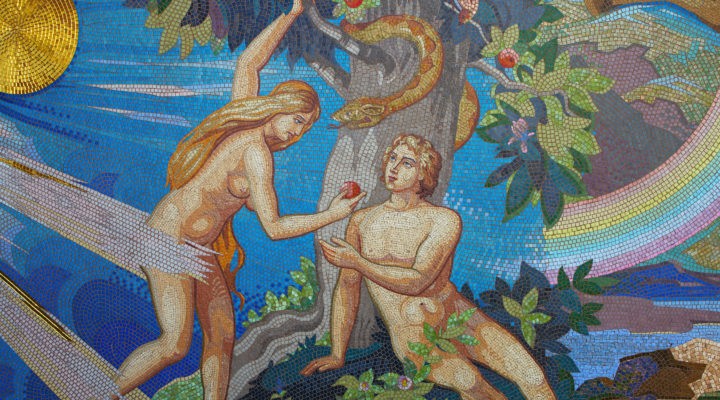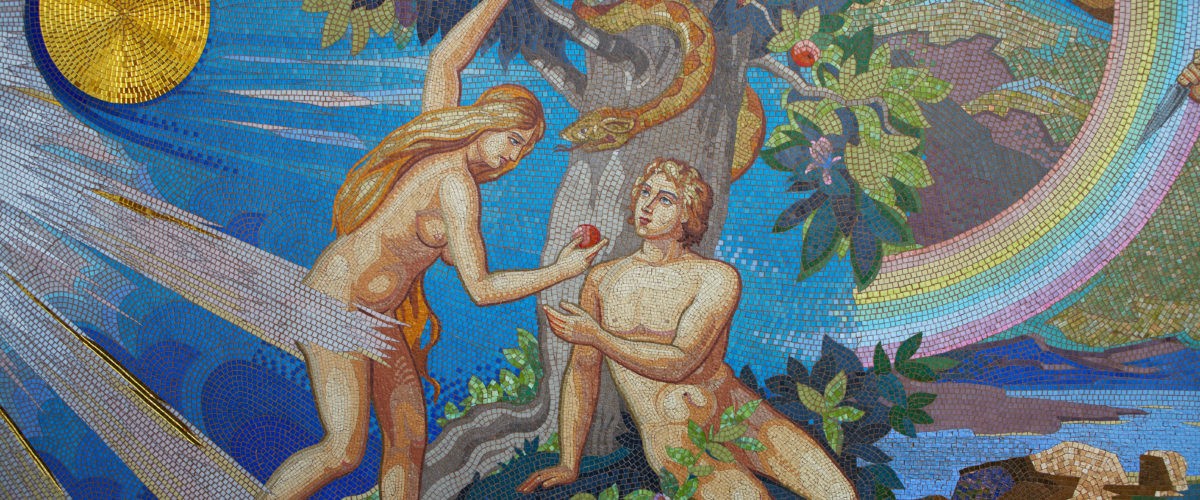“Who told you that you were naked?” God asked Adam and Eve in the Garden. It’s one of the first questions recorded in the Bible. From the very beginning, Evil has taught us that our bodies are bad. We’ve been told that we should not trust our bodies, our feelings, our emotions — that we should deny our very selves for the sake of God, of purity, of others.
American culture has created a certain standard of beauty. For women, it tells us: “Be skinny. Grow your hair out. Wear makeup. Buy expensive beauty products. Look younger. Always younger. Always thinner. Always smoother. Always more beautiful.” For men, society says: “Be strong. Don’t show weakness through emotion. Buck up. Work out. Be buff.”

Amber Cantorna
We’re pressured by articles, ads and promotional branding everywhere we look telling us to eat less, work out more, eat superfood greens, eat microgreens, go keto, go paleo, go vegan, drink more water, drink less (enter your favorite beverage here), drink this or that new potion. It runs us ragged, drains our bank accounts, and still leaves us coming up short, never quite measuring up to that standard of so-called desired beauty or strength.
Christianity has done the opposite. It has taught us that beauty is sinful, that appearing sexy is lustful, and that honoring your body is vain. It has conditioned us to believe that our beauty and/or strength can cause someone else to stumble, making us responsible for the integrity of all mankind. We therefore feel we must hide and suppress our beauty in order not only to keep ourselves pure, but to keep those around us pure as well. We’ve been taught that sex is dirty and tainted, yet somehow becomes magical after you tie the knot, programming us to constantly turn off and ignore a part of us that connects us to our soulmate and, dare I say, even to God.
Living in American society but growing up with a belief system of Christianity has put us at odds with ourselves, causing us both to desire beauty and also to be ashamed of it. No matter what we do, we never quite measure up. Instead, we learn to suppress who we truly are, to ignore our beauty and to hide our frame because who we are somehow is never good enough.
“You are made in the image of God. Your body is the temple of the Holy Spirit. There is nothing shameful about that.”
Who told you that you were naked? Who told you that being naked was bad? Who told you that your body was something to be ashamed of, to be hated, to be forced into submission, to be compared to others, to be punished, and made to please everyone but yourself?
In certain remote villages around the world, people still live naked and unashamed. What would that be like? What would it feel like — to live in a place where you were taught to appreciate the beauty of another without coveting it. Where you were taught to appreciate your own beauty without degrading it. Where we learned to appreciate beauty in its purest form, because it is the image of God.
You are made in the image of God. Your body is the temple of the Holy Spirit. There is nothing shameful about that. Your body is beautiful, your body is good, your body is holy.
Shame never was God’s design. From the very beginning, Genesis tells us, “Adam and his wife were both naked and they felt no shame.”
I propose that we begin a paradigm shift in how we see not just ourselves, but the very bodies God created for us to live inside. I propose that rather than feeling shame and self-hatred every time we look in the mirror, we instead find pleasure and joy in our bodies (whatever shape, size, color or ability) knowing that it reflects the very image of God.
I propose that we break down stereotypes of what it means to be beautiful, to be strong, to be sexy, to be holy. You don’t need to do anything to attain holiness. You already are. You already were. You forever will be.
“Shame is the lie of the serpent.”
Shame is the lie of the serpent, the Evil one saying: You are naked. Be ashamed. Be embarrassed. You were not made in the image of God. Who do you think you are? Your naked frame is a disgrace. Try harder, do more, measure up.
Lies. Lies. Lies.
I challenge you instead to delight in the beauty of your body: the curves, the contours, the strength, the weakness and yes, even the things you see as imperfections. Stop criticizing who you are and start loving who you are. You are the image of God.
I know these thoughts and ideas may feel eccentric. Perhaps they are. But they were God’s idea first. Adam and Eve were put in the garden naked, they were put there not alone, but together, and they felt no shame.
I’m challenging you to resist the stereotypes of what society, Christianity and culture have taught you to believe about yourself and instead appreciate the body you’ve been given. Truly and deeply appreciate this vessel that carries you through life. And to perhaps even begin to look at, dare I say touch, your naked body and feel no shame. For it is the beautiful, perfect, holy temple of God.
Amber Cantorna grew up in the deeply conservative evangelical culture of Focus on the Family and now lives in the Denver area with her wife, Clara. She is the author of Refocusing My Family and Unashamed: A Coming Out Guide for LGBTQ Christians. She is a musician, writer and speaker.
Related articles:
Naked and ashamed: American Christianity’s purity culture and embodiment in the church
A pastoral dilemma about art and nudity: embodied faith and raising children in the church


